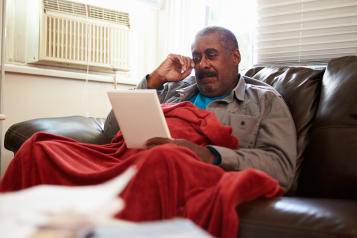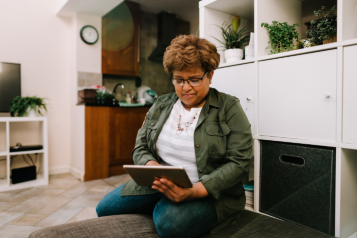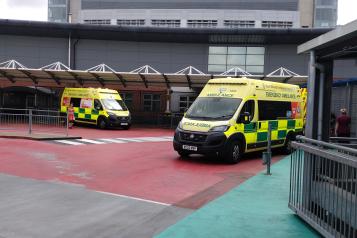Our Chair on the local COVID-19 infection level

The experts are now saying that we are entering a phase of managing the numbers who are becoming so ill from the coronavirus that they need hospital treatment, whilst also controlling the spread of the disease. Vaccination is playing a key role in this.
We have been told many times that the COVID-19 coronavirus pandemic is not over. That is now being borne out by a sharp increase in the number of cases.
Those numbers had been falling, but if you look at a graph of how they have varied over the past month it has the shape of a white-knuckle roller coaster ride. The worry is that we are currently climbing sharply upwards.
Case numbers are much higher now than they were a year ago and the numbers admitted to hospital or, tragically, dying are also both higher than this time last year.
The good news is that, despite those increased numbers, the impact on the NHS is less severe than before, and that is attributed to the success of the vaccination programme. Had we seen the current case numbers last year, there is no doubt that the NHS would have buckled under the pressure.
Hospitals are now dealing with a significant number of COVID-19 patients, but many people in the UK have developed a degree of protection against the virus. Office of National Statistics figures show more than nine in 10 adults in the UK now have antibodies to coronavirus, either through vaccination or having been infected with the virus.
Alongside this hospitals and primary care services are currently being severely tested by a backlog of issues, including long waiting lists that have built up because of restrictions imposed during the pandemic.
Our hospitals are also experiencing unusually heavy demand at their A&E departments. I am hearing about seriously long waits for treatment for patients at A&E.
Managers say it is difficult to pin down the precise reasons for the increase in people attending A&E, though it appears that some are there because they are finding it difficult to get a face to face appointment to see their local doctor. Healthwatch Coventry recently investigated GP answerphone messages and how they could be improved. GPs stress that no one who needs a face to face appointment is being denied that opportunity, but some people appear to have decided to go to A&E instead.
Healthwatch Coventry is monitoring all of this and is in regular dialogue with those who manage the system, both at hospitals and in general practice and is hearing from patients and the public. You can share your views on health and social care services here.
Meanwhile, we can all closely follow the next phase in the progress of the coronavirus. As we do, the cautions and protections with which we have become familiar, such as face masks and social distancing, remain available to help steer us through it and stay safe. For up-to-date guidance, visit the Coronavirus page on the Healthwatch Coventry website.


